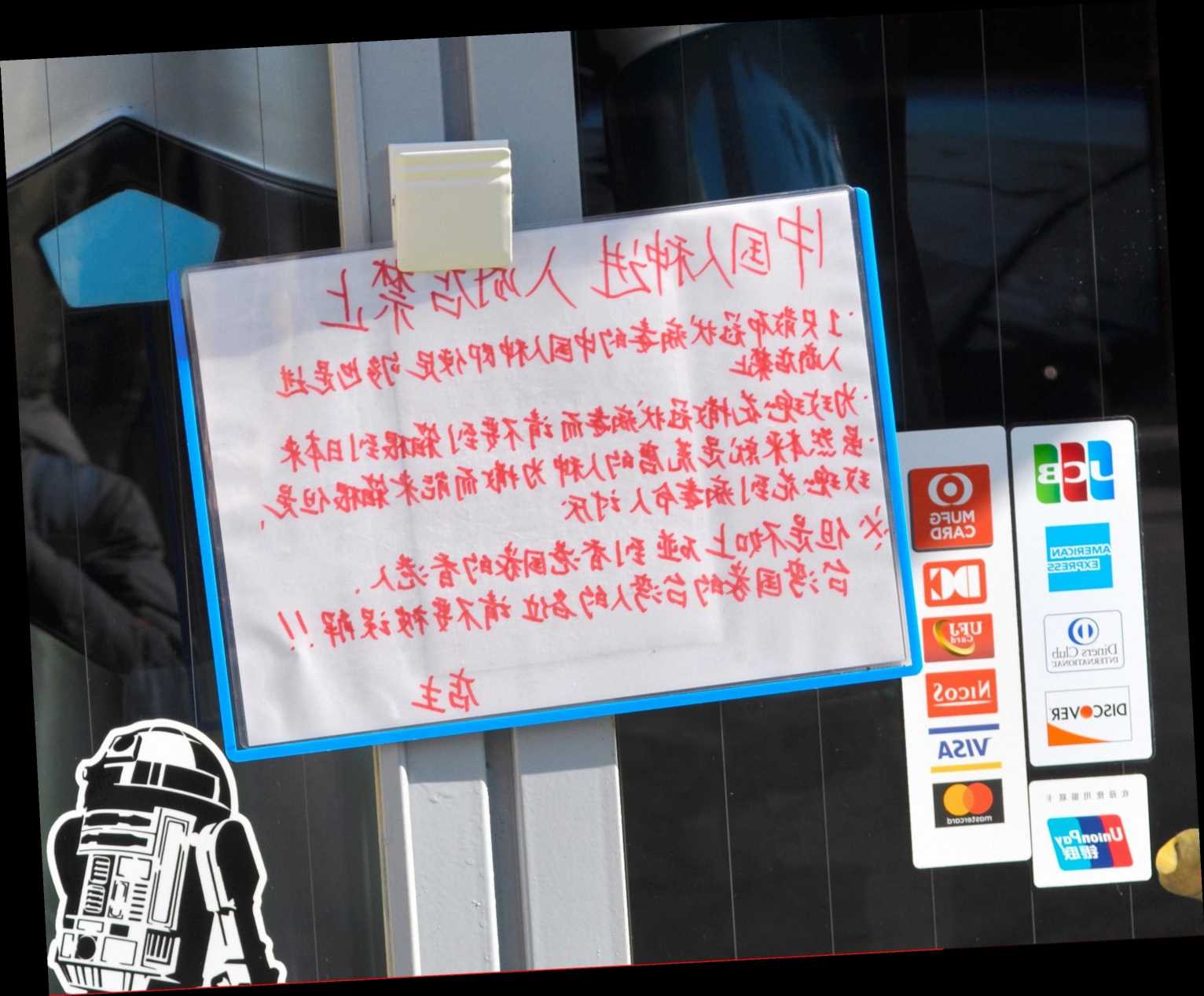A SWEET shop owner in Japan has banned Chinese tourists from entering because to "protect himself" from the killer coronavirus.
A sign outside his shop says "no Chinese allowed in the shop" in Hakone in the Kanagawa prefecture just south of Tokyo.
This comes as Japan has confirmed its third case of the coronavirus today, Japan Times reported.
The patient is a woman in her 30s from Wuhan, which is the epicentre of the virus, and she arrived in Japan on the January 18, the country's health ministry said.
It is understood the shop owner translated the words using an app.
He told local newspaper Asahi Shimbun: "I want to protect myself against the coronavirus. I don't want Chinese tourists to enter."
The sign on the storefront reportedly also contained offensive words like "absurd ethnic group" and "makes one feel annoyed", the Straits Times reported.
The owner said he would rewrite the message to avoid such expressions, but the ban will stay.
One on Weibo, the Chinese microblogging site, shared an image of the sign and wrote: "Although the translated text doesn't make sense, one can feel the strong malice
"Remember this trash shop and never go there."
DEADLY VIRUS
It comes as 19 new potential coronavirus cases emerged yesterday in the UK.
Fourteen other people previously tested have been given the all-clear.
Three cases were confirmed in France yesterday, the first in Europe. One case was also last night confirmed in Melbourne in Australia.
A 48-year-old man is in hospital in the south-western city of Bordeaux. The other case is in Paris.
Chief Medical Officer Prof Chris Whitty admitted after an emergency Cobra meeting: “There may well be cases in the UK at some stage.”
Authorities say the number of confirmed infections in China has risen to 1,287, with 41 deaths. The youngest victim is believed to be 36.
The Chinese government scrapped Lunar New Year celebrations in a bid to stop the virus from spreading.
Major tourist attractions such as Shanghai's Disneyland theme park, the Badling section of the Great Wall of China and the Forbidden City in Beijing have also been closed.
The closures come as 18 cities in China have been put on lockdown, which affects 56million people.
Seven million people in Huanggang have been told not to leave and at least one million residents in Ezhou are unable to travel after the rail stations were shut.
Transport services have been suspended in the smaller cities of Xiantao, Zhijiang, Qianjiang, Chibi, Jingmen, Xianning, Huangshi (including Daye City, Yangxin County), Dangyang, Enshi, Yichang and Xiaogan.
In Zhijiang city, all public venues were shut down except for hospitals, supermarkets, farmers' markets, gas stations and drug stores, Hubei Daily reported.
Indoor entertainment venues in Enshi city were also closed, it said.
There are more than 1,300 cases globally, but a new report produced by Lancaster University in England, the University of Florida and the University of Glasgow says only five per cent of all the coronavirus cases are being diagnosed.
Dr Jonathan Read, a biostatistics researcher at Lancaster, wrote to colleagues he that by February 4 modelling shows the number of infected people in Wuhan to be greater than 250,000 – but could hit 351,396.
“If no change in control or transmission happens, then we expect further outbreaks to occur in other Chinese cities, and that infections will continue to be exported to international destinations at an increasing rate” he wrote.
“We predict the cities with the largest outbreaks elsewhere in China to be Shanghai, Beijing, Guangzhou, Chongqing and Chengdu.
“We also predict that by 4 Feb 2020, the countries or special administrative regions at greatest risk of importing infections through air travel are Thailand, Japan, Taiwan, Hong Kong, and South Korea.”


What is coronavirus?
Coronavirus is an airborne virus, spread in a similar way to colds and the flu.
The virus attacks the respiratory system, causing lung lesions.
Symptoms include a runny nose, headache, cough and fever, shortness of breath, chills and body aches.
It is incredibly contagious and is spread through contact with anything the virus is on as well as infected breath, coughs or sneezes.
Symptoms include a runny nose, headache, cough and fever, shortness of breath, chills and body aches.
In most cases, you won't know whether you have a coronavirus or a different cold-causing virus, such as rhinovirus.
But if a coronavirus infection spreads to the lower respiratory tract (your windpipe and your lungs), it can cause pneumonia, especially in older people, people with heart disease or people with weakened immune systems.
There is no vaccine for coronavirus.
In 2003 an outbreak of a similar virus, SARS, infected more than 8,000 people in 37 countries before it was brought under control, killing 800 of those worldwide.
Source: Read Full Article




